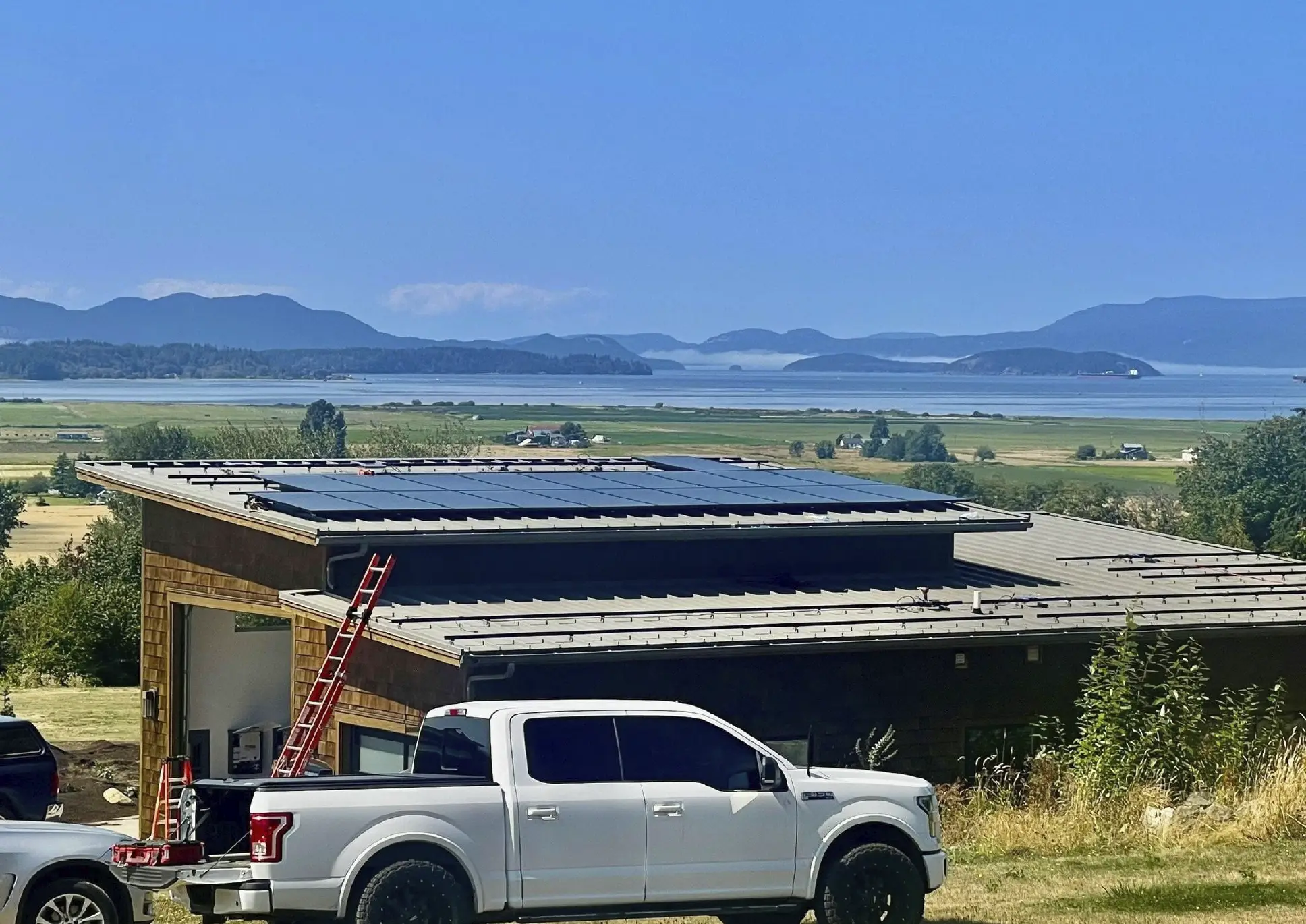Who hasn’t encountered a “free solar” ad online or dealt with a pushy solar salesperson at their door? Social media platforms are flooded with such offers, driven by aggressive marketing tactics from third-party marketers and sometimes even unscrupulous residential solar companies. The combination of these marketers with disreputable solar sales companies has a significant negative impact on both consumers and the clean energy industry. Let’s explore this topic in more detail below.
As the demand for clean energy solutions rises, the solar industry has become a booming market. Solar panels promise to reduce electricity bills, contribute to environmental sustainability, and increase energy independence – all good for installers and consumers. However, amid the good are disingenuous marketing tactics through the misleading concept of “free solar.” The idea of getting free solar panels without any cost sounds great for the consumer, the reality is far more detrimental to both the consumer and the clean energy industry.
In the Puget Sound area, there have been numerous reports of misleading “free solar” ads targeting homeowners. These ads, often seen on social media and through direct mail, promise no-cost solar installations but fail to disclose the long-term financial commitments and escalating costs tied to solar leases and Power Purchase Agreements (PPAs). Homeowners have reported feeling deceived after signing contracts that result in minimal savings and complex contractual obligations. Kiro News
The Types of Disingenuous Marketing to Consumers
Third-party marketers often flood social media with eye-catching ads promising “free solar” installations, such as “If you live in this zip code, you may qualify for free solar.” These ads aim to entice homeowners, not by providing accurate information but by directing them to landing pages that request their contact details. Consumers, hopeful of qualifying for free solar, enter their information without realizing the true costs.
The misleading nature of these ads exploits the complexity of solar financing, once these third-party marketers obtain contact information from interested users, they sell these details to solar companies as legitimate leads. Solar companies purchase these leads believing they are genuine prospects who are ready to invest in solar energy solutions. However, the consumers who provided their information often did so without a full understanding of the offers, leading to a mismatch between customer expectations and what the solar companies can deliver. This practice not only frustrates consumers, who may feel misled or pressured, but also damages the reputation of the solar industry as a whole by fostering distrust and skepticism among potential customers.
“No money down” for solar installations is another disingenuous tactic unfortunately offered by disreputable residential solar installers. The offer is incredibly enticing to homeowners looking to reduce their electric bills without the burden of upfront costs. These offers are typically made with a time constraint to “act quickly” and “sign here” mentality of pushy solar salespeople. However, these financing options may seem attractive at first read, they ultimately cost consumer more money than if they paid cash or secured a loan from a reputable credit union or banking institution.
“Many ‘no money down’ solar deals end up costing homeowners significantly more over time, with some agreements resulting in payments exceeding $30,000 over the life of the contract, compared to an upfront purchase cost that could be much lower”(Solar Reviews).
Key Indicators of “No Money Down” Offers
1. Higher Long-Term Payments: “No money down” offers are typically leases or Power Purchase Agreements (PPAs). The homeowner agrees to pay a fixed rate for the electricity produced by the solar panels. The rate is made typically to match or slightly lower their current monthly electric costs initially, however they also usually include annual escalations. Often, it exceeds the cost savings on energy bills.
2. Interest and Fees: These financing arrangements have built-in interest rates and fees that significantly increase the total cost of the solar system, more money compared to purchasing the system outright with the help of a financial institution or paying cash.
3. Complicated Contracts: The terms and conditions of “no money down” agreements are often complex and difficult for homeowners to understand. Many homeowners enter these contracts believing they will eventually own their solar energy system by paying the same amount or slightly less each month. However,
4. Long-Term Contracts: Solar leases and PPAs often require homeowners to sign long-term contracts, sometimes up to 20-25 years. Breaking these contracts early can result in significant penalties.
5. Escalation Clauses: Many agreements include an escalation clause, which means the cost of the solar energy increases annually. Over time, these costs can add up, potentially exceeding the savings on electricity bills.
6. Complicated Ownership: Since the solar company retains ownership of the panels, homeowners may face difficulties if they want to sell their property. Prospective buyers might be hesitant to take on the existing solar lease or PPA.
Protecting Yourself from Misleading Offers
Consumers who fall for these misleading offers often find themselves in unfavorable financial situations. Instead of the significant savings they were promised, they will end up paying more over the lifespan of the agreement. Here are some tips to keep your safe from predatorial and disreputable companies:
- Read the contract carefully, thoroughly reviewing the terms and conditions, paying strong attention to details like interest rates, escalation clauses, and penalties for early termination.
- Compare financing options and consider all available financing options, including loans from reputable credit unions or banks, which often have more favorable terms than “no money down” financing.
- Do not engage in discussion with solar salespeople who give you time deadlines, pushy and don’t offer transparency. If a salesperson arrives to your first meeting with you with a contract in hand, that is a warning sign to be careful and do not sign anything in your first meeting.
- Make sure to consult with experts at your local credit union or favorite banking institution before making any decision.
The Benefits of Paying Cash or Securing a Loan
1. Immediate Ownership and Savings: By paying cash or securing a loan from a reputable credit union or bank, homeowners immediately own their solar system. This ownership translates to direct savings on electricity bills without the burden of escalating payments or hidden fees.
2. Lower Overall Costs: Loans from credit unions and banks often come with lower interest rates and more favorable terms than the financing options offered by solar companies. This can result in significant savings over the life of the loan compared to the total cost of a lease or PPA.
3. Tax Incentives and Rebates: Homeowners who purchase their solar system outright or through a loan are eligible to take advantage of federal, state, and local tax incentives and rebates. These incentives can substantially reduce the upfront cost and improve the overall return on investment.
4. Flexibility and Control: Owning the solar system provides homeowners with greater flexibility and control. They can choose to sell their home without the complications of transferring a lease or PPA, and they have the freedom to upgrade or modify their system as needed.
The Impact on the Clean Energy Industry
Disreputable third-party marketers and unscrupulous solar companies are having a detrimental impact on both consumers and the clean energy industry. These bad actors use misleading “no money down” offers and aggressive marketing tactics to lure unsuspecting homeowners into unfavorable contracts. As a result, consumers often face higher-than-expected costs, complex terms, and long-term financial commitments, leading to frustration and distrust. This negative experience not only harms the consumers directly involved but also taints the reputation of the entire solar industry, making potential customers wary of adopting solar solutions. Consequently, reputable solar companies that operate transparently and ethically face increased skepticism, making it harder for them to attract customers and grow their businesses. Overall, these deceptive practices undermine the progress and credibility of the clean energy movement in the following ways (Third-Party Solar Financing | SEIA):
1. Eroding Trust: Misleading marketing tactics erode trust in the solar industry. When consumers feel duped, they share their negative experiences, which can deter others from considering solar energy.
2. Regulatory Scrutiny: Increased consumer complaints and dissatisfaction can lead to greater regulatory scrutiny. This can result in stricter regulations and oversight, potentially increasing costs and hurdles for all solar companies, including those operating ethically.
3. Stifling Innovation: The focus on aggressive sales tactics over innovation can stifle the development of better, more efficient solar technologies. Companies investing heavily in marketing might neglect R&D, slowing down advancements in the industry.
4. Market Distortion: The proliferation of “free solar” schemes can distort the market, making it harder for companies offering genuine value to compete. This can lead to a race to the bottom in terms of quality and service.
Conclusion
The concept of “free solar” is a misleading marketing gimmick that can harm both consumers and the clean energy industry. By understanding the hidden costs and potential pitfalls of such offers, consumers can make more informed decisions about their energy choices. At the same time, promoting transparency, ethical practices, and innovation within the industry can help restore trust and drive the adoption of genuine, beneficial clean energy solutions. The future of solar energy depends on a foundation of honesty and integrity, ensuring that its promise of a sustainable future is realized for all.

